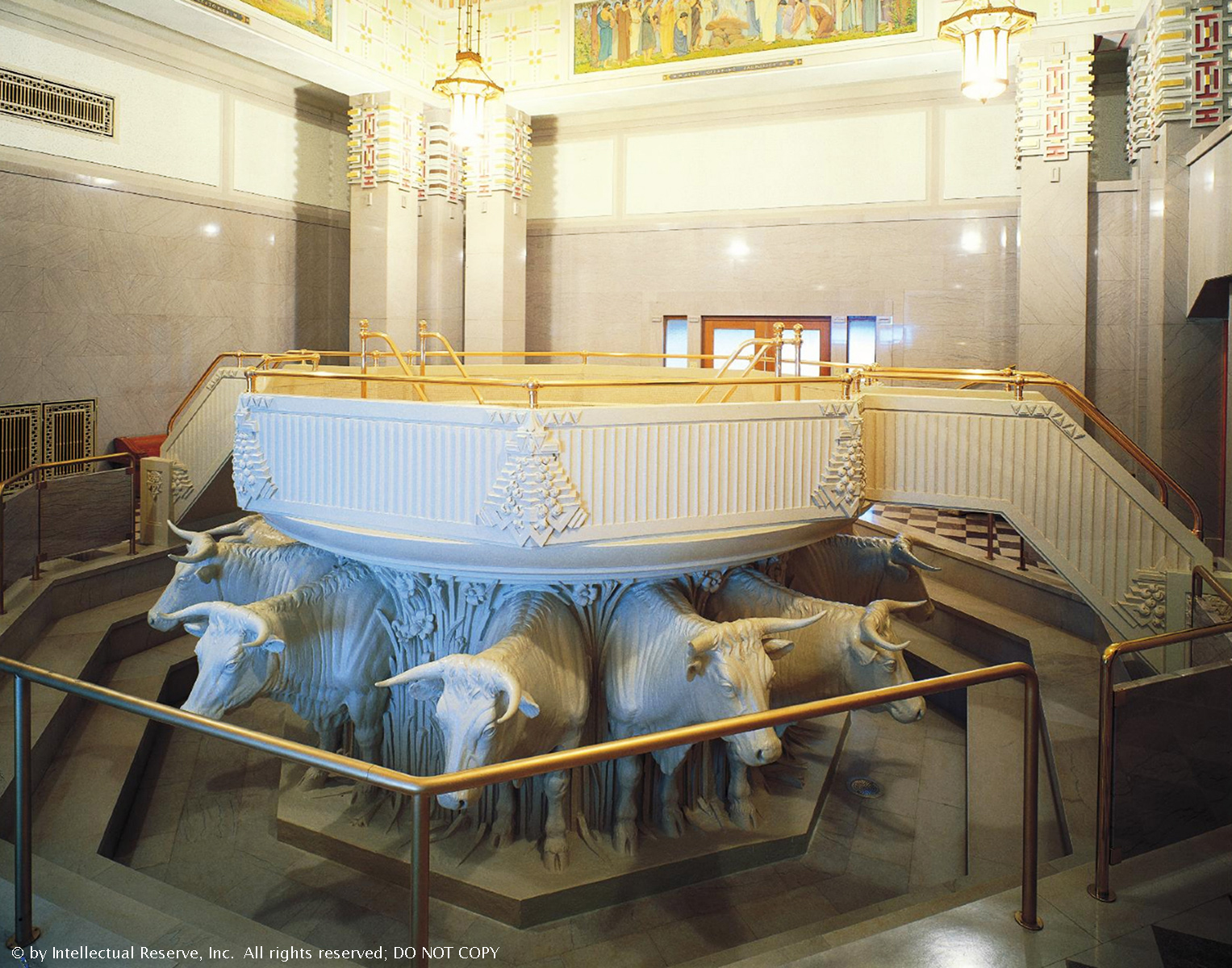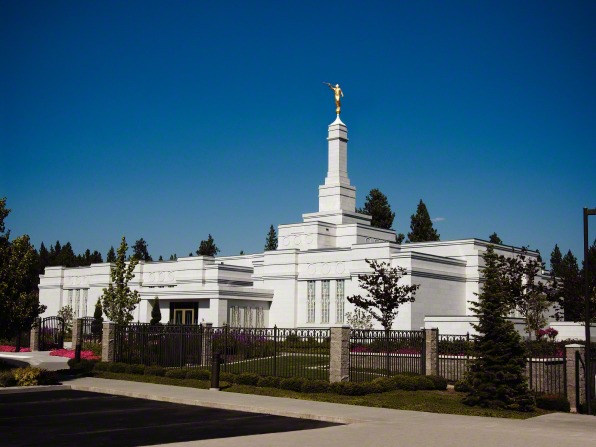Temples are sacred for the closest communion between the Lord and those receiving the highest and most sacred ordinances of the holy priesthood. It is in the temple that things of the earth are joined with the things of heaven. … The great family of God will be united through the saving ordinances of the gospel. Vicarious work for the dead and ordinances for the living are the purposes of temples.

The gospel proclaimed to the world by the Latter-day Saints is the gospel of Jesus Christ as restored to the earth in this dispensation and is for the redemption of all mankind. The Lord himself has revealed what is essential for the salvation and exaltation of his children. One of these essentials is that temples are to be erected for the performance of ordinances that cannot be performed in any other place.
In response, we often first explain the ordinance known as baptism for the dead. We note that many Christians believe that at the time of death, our status before the Lord is determined for all eternity, for did not Christ say to Nicodemus, “Verily, verily, I say unto thee, Except a man be born of water and of the Spirit, he cannot enter into the kingdom of God” (John 3:5)? Yet we know that many people have died without the ordinance of baptism, and thus, according to Christ’s statement to Nicodemus, they would be eliminated from entering into the kingdom of God. This raises the question, is God just?
The answer is, of course God is just. It is evident that the Savior’s statement to Nicodemus presupposes that baptisms may be done for those who have died who have not been baptized. Latter-day prophets have told us that baptism is an earthly ordinance that can be performed only by the living. How then can those who are dead be baptized if only the living can perform the ordinance? That was the theme of the Apostle Paul’s writing to the Corinthians when he asked this question:
“Else what shall they do which are baptized for the dead, if the dead rise not at all? why are they then baptized for the dead?” (1 Cor. 15:29.)
The endowment is another ordinance performed in our temples. It consists of two parts: first, a series of instructions, and second, promises or covenants that the person receiving the endowment makes—promises to live righteously and comply with the requirements of the gospel of Jesus Christ. The endowment is an ordinance for the great blessing of the Saints—both living and dead. Thus it is also an ordinance performed by the living in behalf of deceased individuals; it is performed for those for whom baptismal work has already been performed.
Another temple ordinance is that of celestial marriage, where wife is sealed to husband and husband sealed to wife for eternity. We know, of course, that civil marriages end at death; but eternal marriages performed in the temple may exist forever. Children born to a husband and wife after an eternal marriage are automatically sealed to their parents for eternity. If children are born before the wife is sealed to her husband, there is a temple sealing ordinance that can seal these children to their parents for eternity, and so it is that children can be sealed vicariously to parents who have passed away. …
Surely we on this side of the veil have a great work to do. … The building of temples has deep significance for ourselves and mankind, and our responsibilities become clear. We must accomplish the priesthood temple ordinance work necessary for our own exaltation; then we must do the necessary work for those who did not have the opportunity to accept the gospel in life. Doing work for others is accomplished in two steps: first, by family history research to ascertain our progenitors; and second, by performing the temple ordinances to give them the same opportunities afforded to the living.
I have learned that those who engage in family history research and then perform the temple ordinance work for those whose names they have found will know the additional joy of receiving both halves of the blessing.
The objective of family history work is to make the blessings of the temple available to all people, both living and dead. As we attend the temple and perform work for the dead, we accomplish a deep sense of alliance with God and a better understanding of his plan for the salvation of the human race. We learn to love our neighbors as ourselves. Truly there is no work equal to that done in the temple.
s we do the work in [the] temple for those who have gone beyond, we are reminded of the inspired counsel of President Joseph F. Smith who declared: “Through our efforts in their behalf, their chains of bondage will fall from them, and the darkness surrounding them will clear away, that light may shine upon them; and they shall hear in the spirit world of the work that has been done for them by their children here, and will rejoice”
The Prophet Joseph Smith stated, “The greatest responsibility in this world that God has laid upon us is to seek after our dead” [Teachings of Presidents of the Church: Joseph Smith (2007), 475]. He also stated: … “Those Saints who neglect it in behalf of their deceased relatives, do it at the peril of their own salvation” [Teachings of Presidents of the Church: Joseph Smith, 471–72].
e; and let your diligence, and your perseverance, and patience, and your works be redoubled, and you shall in nowise lose your reward, saith the Lord of Hosts” (D&C 127:4).
I encourage you in your efforts with these words of the Prophet Joseph Smith: “Brethren, shall we not go on in so great a cause? Go forward and not backward. Courage, brethren; and on, on to the victory! Let your hearts rejoice, and be exceedingly glad. Let the earth break forth into singing. Let the dead speak forth anthems of eternal praise to the King Immanuel, who hath ordained, before the world was, that which would enable us to redeem them out of their prison; for the prisoners shall go free” (D&C 128:22).
I love this work. I know the Lord will provide all that will be required to accomplish it as we devotedly do our part. May the Lord bless each of us as we make our contribution to this great work, which we must accomplish in our day.
